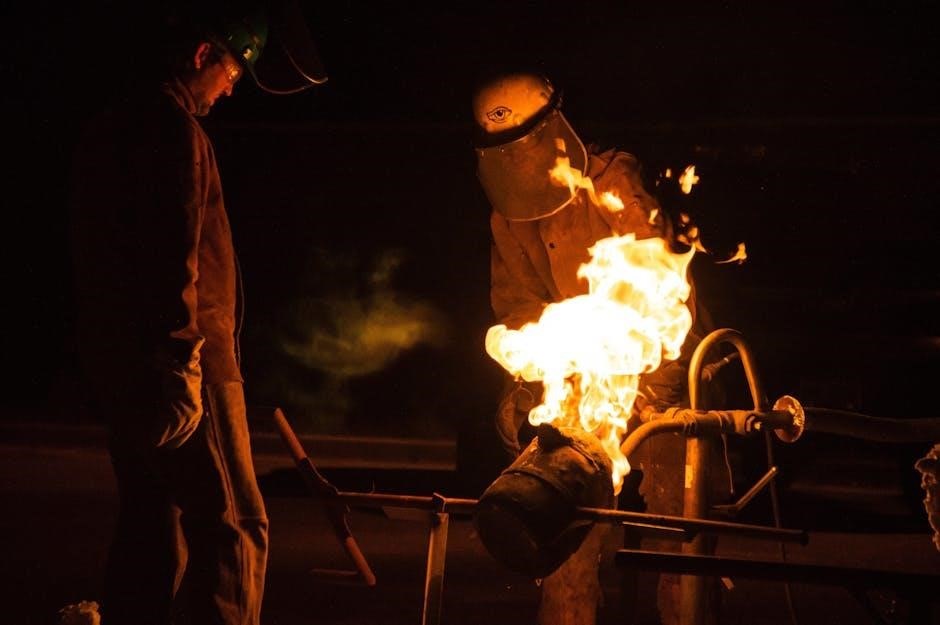The tragic story unfolds in Act 3 of Romeo and Juliet with intense drama and conflict emerging between characters, setting the stage for a heartbreaking conclusion slowly.
Overview of the Act
Act 3 of Romeo and Juliet is a pivotal part of the play, marking a turning point in the story. The events that unfold in this act have a profound impact on the characters and the overall plot. The act begins with a sense of tension and conflict, as the feud between the Montagues and Capulets escalates. The characters are faced with difficult decisions and challenges, which ultimately lead to tragic consequences. The act is characterized by intense drama, passion, and emotion, as the characters navigate their relationships and loyalties. The plot thickens as the act progresses, setting the stage for the devastating events that will occur in the subsequent acts. The overview of Act 3 provides a framework for understanding the complexities of the play and the motivations of the characters, making it a crucial part of the Romeo and Juliet reading guide.
Scene 1 of Act 3
Mercutio and Benvolio engage in a lively conversation setting the scene perfectly with their words.
The scene begins with Mercutio and Benvolio walking through the streets of Verona, discussing the heat and their plans for the day. They encounter Tybalt, who is looking for Romeo to challenge him to a duel. Mercutio, being the loyal friend that he is, accepts the challenge on Romeo’s behalf. The two engage in a fierce duel, resulting in Mercutio’s death. Romeo, who had been trying to avoid the fight, becomes enraged and kills Tybalt in a rage. The scene ends with Romeo being banished from Verona, leaving Juliet behind. This event sets the stage for the rest of the act, as Romeo and Juliet try to navigate their love for each other despite the obstacles in their path. The scene is significant because it marks a turning point in the play, as the violence and conflict escalate.
Juliet’s Conflicting Loyalties
Juliet struggles with loyalty to family and love for Romeo quietly.
Analysis of Juliet’s Character
Juliet’s character is complex and multifaceted, revealing a deep sense of emotion and loyalty. Through her actions and dialogue, it is clear that she is torn between her love for Romeo and her duty to her family. This conflict is evident in her interactions with the Nurse and her parents, as she struggles to navigate her feelings and make decisions that will ultimately impact her future. The analysis of Juliet’s character provides insight into the themes of love, loyalty, and identity, highlighting the challenges she faces as a young woman in a society governed by strict social norms. Furthermore, Juliet’s character serves as a catalyst for the events that unfold in Act 3, driving the plot forward and contributing to the tragic conclusion. Her story continues to captivate audiences, offering a timeless exploration of the human experience.
Friar Laurence’s Role in Act 3
Friar Laurence provides guidance and support to Romeo and Juliet in Act 3 with wisdom and patience always.
Advice to Romeo
Friar Laurence’s advice to Romeo is a pivotal aspect of Act 3, as he attempts to calm Romeo’s emotional turmoil. The friar’s words of wisdom and guidance are intended to help Romeo navigate his banishment and reunion with Juliet. Through their conversations, Friar Laurence emphasizes the importance of patience, hope, and level-headedness, urging Romeo to reconsider his impulsive decisions. By providing a voice of reason, Friar Laurence aims to prevent further conflict and tragedy, while also encouraging Romeo to take responsibility for his actions. The friar’s counsel serves as a turning point in Romeo’s development, as he begins to understand the gravity of his situation and the need for prudent decision-making. Ultimately, Friar Laurence’s advice to Romeo sets the stage for the unfolding events of the play, as the star-crossed lovers strive to overcome the obstacles that threaten to tear them apart.
Romeo’s Emotional State
Romeo’s emotions are intense and turbulent, driven by passion and desperation, fueling his actions.
Impact of Banishment
The banishment of Romeo from Verona has a profound impact on the story, leading to a series of tragic events. Romeo, distraught over his banishment, believes it is worse than death, and his emotional state becomes increasingly unstable. The separation from Juliet and his family fuels his desperation, causing him to make rash decisions. The banishment also leads to a sense of isolation and loneliness, exacerbating Romeo’s feelings of hopelessness. Furthermore, the banishment sets in motion the events that will ultimately lead to the tragic conclusion of the story. The impact of banishment is a pivotal element in the narrative, driving the plot forward and contributing to the sense of inevitability that pervades the story. The consequences of Romeo’s banishment are far-reaching, affecting not only Romeo but also those around him. This event marks a turning point in the story.
Plot Summary of Act 3
Act 3 unfolds with intense drama and conflict emerging between characters slowly.
Key Events and Themes
Act 3 of Romeo and Juliet is filled with pivotal events that shape the tragic outcome of the story. The fight between Mercutio and Tybalt, and Romeo’s subsequent banishment, are key events that drive the plot forward. The theme of conflict is prevalent throughout the act, as the feud between the Montagues and Capulets reaches a boiling point. The character of Friar Laurence plays a significant role in Act 3, as he attempts to guide Romeo and Juliet through their struggles. The theme of love versus hate is also explored, as Romeo and Juliet’s love for each other is contrasted with the hatred between their families. Overall, Act 3 is a crucial part of the play, setting the stage for the tragic conclusion that awaits the star-crossed lovers. The events of Act 3 are expertly woven together to create a sense of tension and foreboding.


Leave a Reply
You must be logged in to post a comment.